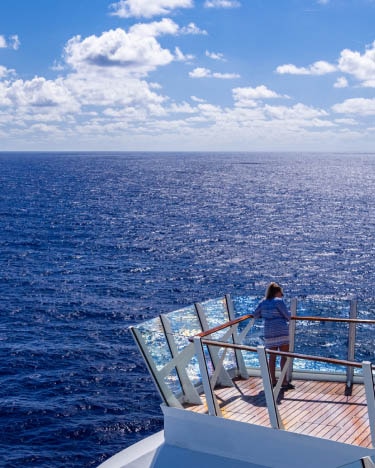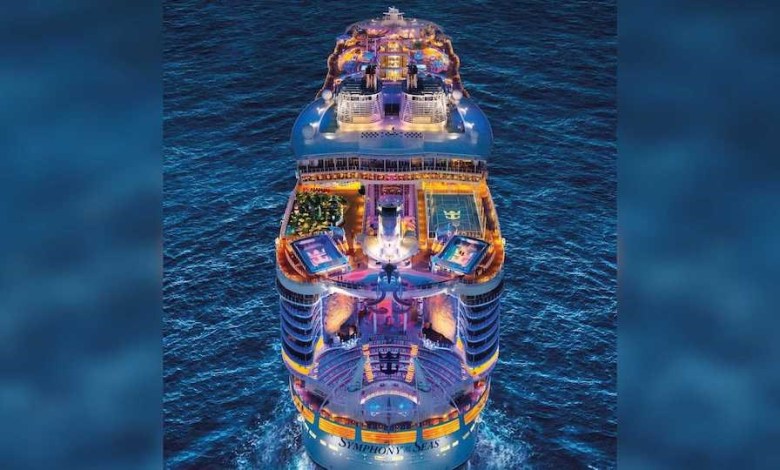
It is possible to work on cruise ships as a lifeguard and earn money. Many different cruise ship job opportunities are available. Each one requires a certain skill set and qualification.
The Caribbean is one of the best things about working on a ship. Enjoy the best beaches, cities and islands from a different perspective. You can also enjoy a lot of free time and make great money while you're at it.
Lifeguarding on cruise ships is a rewarding career, but it's not without its challenges. You'll need to have the ability to cope with the stresses of life at sea, and to respond quickly to any emergency situation. You'll need to be trained on the latest crisis response protocol, and you may need to participate in a lot of mandatory training.

It is best to get an interview with a company of your choice and then start your career. Try to find a recruiter or someone who can help you break in.
Disney, Carnival Cruise Lines, Norwegian and Princess Cruises are among the most popular. There is a fun, family-oriented atmosphere. Also, it's easier to land your first contract.
Crystal, Regent Seven Seas or Seabourn cruises are slightly more expensive. There are more upscale itineraries with a more mature audience, but getting your first cruise contract is much more difficult.
In addition to the traditional lifeguard positions, some cruise lines hire people who have a more varied background in hospitality. It means that they have experience in dealing with guests and know a great deal about how to communicate with them. This can be a valuable asset for the cruise company as they'll welcome passengers to shows and shore excursions, assist them with water slides, or provide escorts.

It is normal to expect that you will spend your first few weeks aboard a cruise ship training. These courses cover basic ship safety as well as lifeboat operation, evacuation protocol and crowd management. The courses are exhausting but necessary to ensure your safety on board.
After your training, your lifeguard duties will be explained to you. You'll have to ensure that swimmers obey safety rules and regulations.
As a lifeguard on a cruise ship, you have to be able to communicate with guests and fellow crew members in a variety of languages. If you don't speak the language of the ship, you will need to attend translation classes before you can begin your job. During your stay aboard the ship, it is mandatory that you participate in emergency drills. They can last for hours and are typically performed at the end the day.
FAQ
Why is cruise vacation so popular?
A cruise is a great option for travelers who don't want the hassle of long flights and delays. You can also relax in a serene environment where you don't have to worry about your schedule or any other aspects of daily life.
It is also possible to travel by cruise ship, making it easier for tourists to visit different places on land as well as at sea. This allows them to take in all the sights and attractions of each destination.
Which cabin type should I buy?
When deciding on a cabin, think about what size room you want. Is it okay to share a bathroom with someone else? Would you prefer a private bathroom? Are you sensitive to noise? Is it important to you that you spend more time in the stateroom or the dining area? Consider whether you would prefer an interior or balcony view. Balconies give you a little more space, but they can sometimes be noisy. Interior views are generally quieter than balconies.
Is a cruise all-inclusive on a ship?
They do not include meals for guests with restricted diets. You will not find room service, laundry, or any other amenities like pools, gyms and spas on a cruise ship.
Certain cruise lines offer "all inclusive" packages, which include all the necessary amenities except alcohol. These packages include airfare, hotel accommodations (accommodation), entertainment, and beverages.
Statistics
- The line estimates savings of 50% when you purchase this bundle. (travel.usnews.com)
- For an example of savings, Royal Caribbean offers up to a 40% discount with a dining package. (travel.usnews.com)
- If you're traveling alone, you may also need to factor in a single supplement, adding up to as much as 100% of the cruise fare. (travel.usnews.com)
- *20% Gratuities Apply on Free Unlimited Open Bar; Free Specialty Dining. (ncl.com)
External Links
How To
How to stay safe while aboard a cruise vessel
On a cruise ship, there are many things you should know before embarking on your journey. You must understand how to behave when onboard so you don't get into trouble. Here are some safety tips to help you enjoy your trip.
-
Always be aware of what is happening around you. People often gather onboard cruise ships to share meals. You're often surrounded by people who are eager to talk and eat. It can be easy to get distracted. You shouldn't allow this to distract you away from the important things you need to do. If you notice someone engaging in dangerous behavior, such as smoking, or drinking alcohol, politely tell them to stop.
-
Your room key should always be with you on board the ship. If you get lost or need to be found, this will help you to locate your shipmates. Make sure you have your passport handy too.
-
Your valuables should be kept out of reach. Most cabins have drawers under their beds. It is a good place to store valuables like money, credit cards, passports, etc. Also, make sure nothing valuable is visible in plain view. Your bags should be kept in the closet, so that no one can see them.
-
Hydrate. Even though cruise ships are well-stocked with water, it can sometimes be hard to remember how much. Use the free bottled water that is available onboard. You should avoid becoming dehydrated. You will feel tired and cranky which can lead to accidents or fights.
-
Always pay attention to announcements. Announcements are posted everywhere, including on TV screens and public address systems. They include safety procedures and emergency exits as well as weather reports. These announcements will be of great importance. They might save your life!
-
Never leave your cabin unlocked. Never leave your cabin unlocked, no matter how friendly a crew member seems. Thieves often break in through unlocked doors. Crew members can give permission to you to use the restroom if you are in need.
-
Do not go overboard by yourself. If you fall overboard, it takes time for the ship's crew to rescue you. You may attract sharks or other sea creatures to your body while you are still on the ship's crew. You should wait until help arrives.
-
Never smoke inside the elevator. These elevators are pressurized and smoke can build up quickly. If you feel dizzy or lightheaded, get off immediately. You can still breathe even though it is outside fresh.
-
The evacuation procedure. Each year thousands of people are killed by being stuck in elevators. Follow the screen instructions in case of an emergency.
-
You should be familiar with fire drills. Fire drills take place regularly, almost every day. Everyone on the deck must evacuate during a drill. Follow the crew members' directions. Once the drill is complete, go back to your cabin and lock the door.
-
Ask questions before you accept food and drinks. Cruisers are often concerned about food poisoning. It is common for people to not realize that certain foods can't be eaten onboard ships. Most cruise ships prohibit raw oysters. If you're unsure whether or not the food you've been offered is safe, politely refuse and look for another meal instead.
-
Take care when you use the pool. Many people have fallen into the pools by accident. Do not be alarmed if you fall in the pool. You can also slip and fall off the deck at any moment. Always wear appropriate footwear and pay close attention to what's around you.